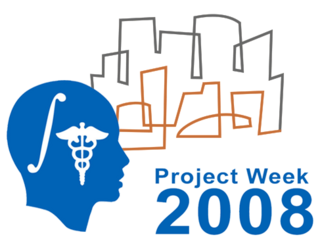Difference between revisions of "2008 Summer Project Week:PerkStation"
From NAMIC Wiki
Sidd queens (talk | contribs) |
Sidd queens (talk | contribs) |
||
| Line 22: | Line 22: | ||
<h1>Approach, Plan </h1> | <h1>Approach, Plan </h1> | ||
| − | The | + | The PERK Station comprises of image overlay. The physician looks at the patient/phantom through the mirror showing the image overlay and the CT/MR image appears to be floating inside the body with the correct size and position, as if the physician had 2D ‘X-ray vision’. The planning and control software runs on a stand-alone laptop, where we draw a visual guide along the trajectory of insertion, mark the depth of insertion and push this image onto the overlay display. |
</div> | </div> | ||
Revision as of 17:51, 11 June 2008
Home < 2008 Summer Project Week:PerkStation Return to Project Week Main Page |
Key Investigators
- PI: Gabor Fichtinger, Queen's University
- Queen's University: Siddharth Vikal
- Johns Hopkins University: Csaba Csoma
- NA-MIC:
Objective
The objective of this project (PERK Station) is to develop a tool implemented as a Slicer 3 module, that provides feedback to trainees in a controlled environment for performing image-guided percutaneous needle interventions.
Approach, Plan
The PERK Station comprises of image overlay. The physician looks at the patient/phantom through the mirror showing the image overlay and the CT/MR image appears to be floating inside the body with the correct size and position, as if the physician had 2D ‘X-ray vision’. The planning and control software runs on a stand-alone laptop, where we draw a visual guide along the trajectory of insertion, mark the depth of insertion and push this image onto the overlay display.
Progress
We are currently in the process of ..